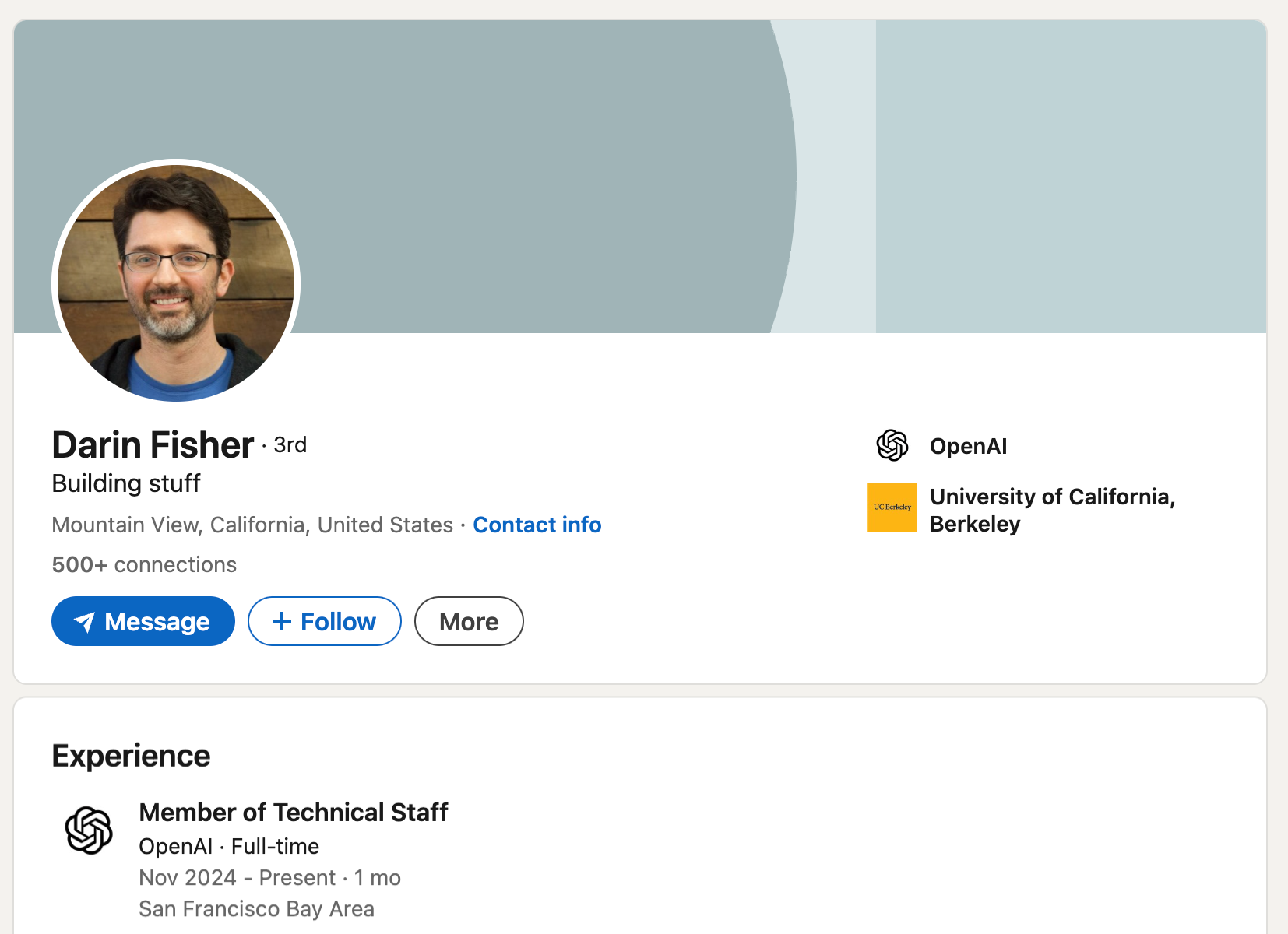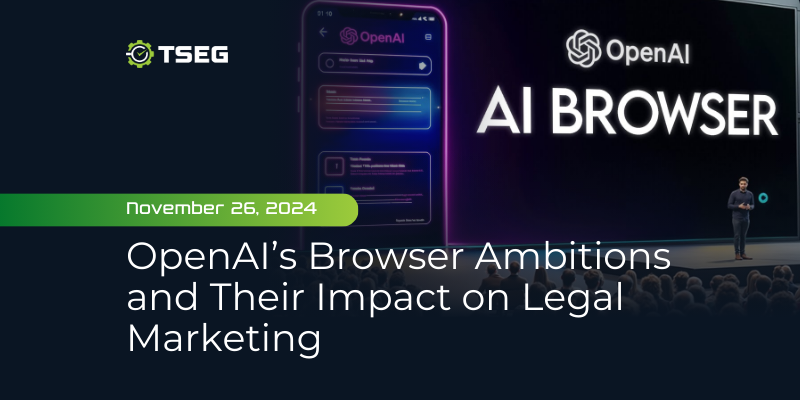OpenAI’s Browser Ambitions and Their Impact on Legal Marketing
Posted on Tuesday, November 26th, 2024 at 4:12 pm
OpenAI Hires a Key Player to Lead Its Next Steps
OpenAI has taken a significant step toward expanding its influence in consumer technology by hiring Darin Fisher, a founding engineer for Google Chrome. Fisher brings years of experience from his time shaping one of the most widely used web browsers in the world. This hiring decision signals OpenAI’s intent to move beyond its roots in AI development and delve into creating user-focused platforms.
By bringing Fisher on board, OpenAI appears poised to explore a direct challenge to established browser giants like Google and Microsoft. While OpenAI has built a strong reputation with its AI tools, such as ChatGPT, this move suggests a broader ambition: embedding artificial intelligence into tools that consumers interact with daily. Fisher’s expertise could play a pivotal role in designing a browser that integrates AI in ways that fundamentally transform how people use the web.
The addition of Fisher’s hints at OpenAI’s broader strategy of creating AI-driven applications that go beyond text and conversational tools. This move could pave the way for a consumer-friendly browser designed with innovative AI features that aren’t yet available in current offerings. Law firms and legal marketers should watch these developments closely, as OpenAI’s expanding toolkit could soon reshape how attorneys and clients interact online.

AI-Enhanced Browsing Could Change the Way We Work Online
An OpenAI-powered browser could introduce groundbreaking features that redefine how people engage with the internet. Imagine a browsing experience where advanced AI capabilities simplify complex tasks, anticipate user needs, and provide personalized recommendations in real time. Such a tool could surpass the incremental AI features already integrated into Google Chrome or Microsoft Edge, such as auto-summarization or voice search.
OpenAI’s advancements in natural language processing and machine learning could enable browsers to go further. Users might see seamless AI-driven assistance for tasks like drafting legal documents, conducting precise research, or automating routine processes. These capabilities could be especially valuable in fields like law, where efficiency and accuracy are vital.
While the specifics of OpenAI’s browser ambitions remain unclear, its history of creating user-friendly, AI-based tools provides a glimpse of what’s possible. A browser that combines intuitive interfaces with cutting-edge AI could streamline workflows for professionals while making advanced tools more accessible for everyday users.
OpenAI’s Competition With Google Chrome
OpenAI’s move into the browser market places it in potential competition with Google Chrome, a dominant force in web browsing. Chrome has long been a cornerstone of Google’s ecosystem, seamlessly integrating its search capabilities and other services. Recent updates have begun incorporating AI features, such as Google Bard’s search integrations, but OpenAI’s focus on generative AI could set it apart in meaningful ways.
OpenAI’s strength lies in creating AI tools designed to simplify complex interactions, such as ChatGPT’s conversational AI, which has already transformed how people engage with information online. As discussed in TSEG’s blog on ChatGPT’s rise, OpenAI’s advancements are pushing boundaries in search and user interaction, which could disrupt established platforms like Chrome. An OpenAI browser could be designed from the ground up with AI as its foundation, offering a smoother, more proactive online experience.
For legal marketers and attorneys, these developments matter. If OpenAI introduces a browser with embedded AI tools, it could impact how users find information, including legal services. Law firms may need to adapt their strategies to ensure they remain visible and relevant in an environment where AI-enhanced tools shape the client journey.

Preparing Law Firms for the Future of AI Integration
OpenAI’s pursuit of an AI-powered browser reflects its broader goal of embedding artificial intelligence into everyday online experiences. This evolution offers law firms a chance to reimagine their approach to client acquisition and digital engagement. An AI-driven browsing environment could transform how users interact with websites, search for services, and make decisions about legal representation.
To stay ahead, law firms must adopt digital marketing strategies that account for these shifts. This includes creating content that answers client questions with precision, investing in search optimization for AI-driven platforms, and maintaining a user-centric web presence. TSEG’s expertise in legal marketing ensures that attorneys remain competitive. By focusing on actionable insights, compliance, and innovative techniques, TSEG empowers law firms to connect with clients in new and meaningful ways.
As OpenAI continues to integrate AI into consumer platforms, the legal industry must adapt to meet the demands of a more connected, intuitive online experience. With the right strategies and partners like TSEG, law firms can turn these changes into opportunities to expand their reach and impact.
